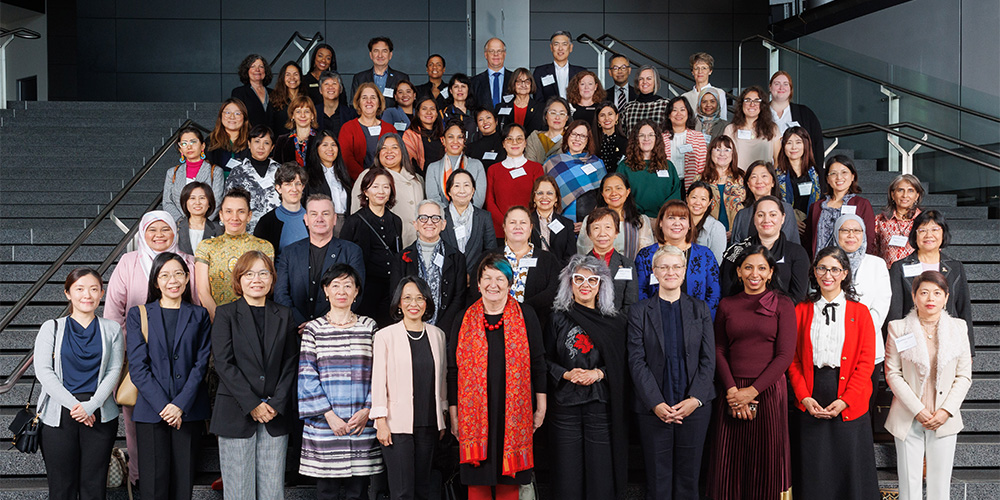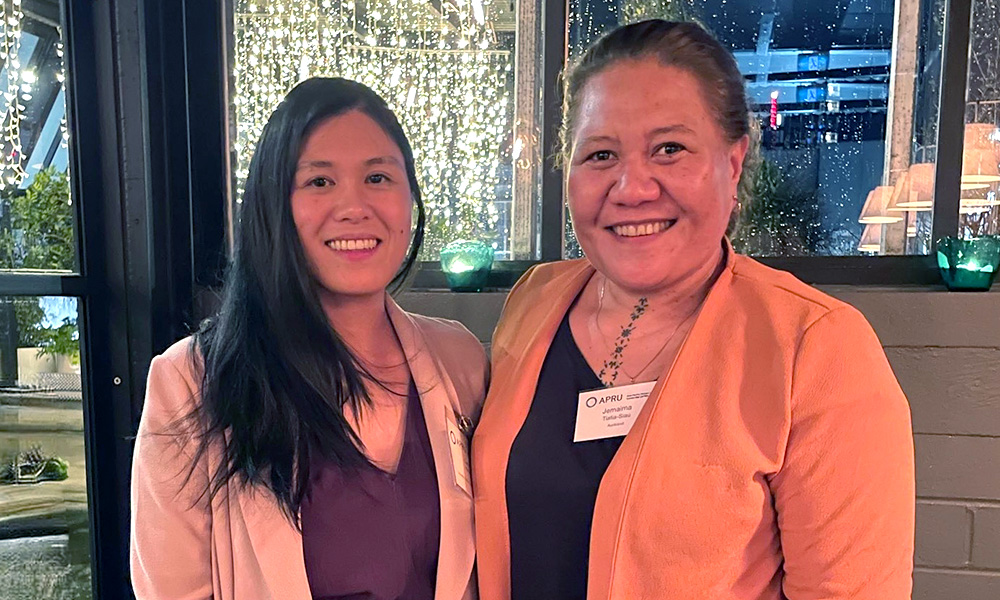Dr. Carla Hilario shares her experiences finding a new perspective on leadership in academia through global mentorship opportunities.

Around the world, women in academia are increasingly stepping into leadership roles, yet many still face social, economic, and institutional barriers as they seek to take the next step in their careers. Universities globally are joining together to create new programs and pathways for mentorship and foster connections to empower women across academia. One such program is the Asia Pacific Women in Leadership (APWiL) Mentoring Program, now in its fifth year, which seeks to drive gender equity in higher education leadership by pairing senior leaders with aspiring women leaders within the Association of Pacific Rim Universities (APRU) for year-long mentorship to support their professional growth and development.
The program instantly caught the attention of Dr. Carla Hilario, an assistant professor in the Faculty of Health and Social Development’s School of Nursing. “The opportunity really spoke to me. Probably in part because I was born in the Philippines, so I’m from the Asia Pacific, even though I’ve spent most of my life in Canada,” shares Hilario. “When I applied, I was looking for mentorship. I joined UBCO two years ago, but I was on parental leave my first year, so I was just getting my feet wet.”
Hilario was accepted into the program and paired with Dr. Jemaima Tiatia-Siau, Ihonuku Te Moananui-a-Kiwa, Pro Vice-Chancellor Pacific at the University of Auckland Waipapa Taumata Rau. “The APWiL organizers did a brilliant job of matching mentors and mentees. They didn’t match people based on discipline or rank or specialization. They identified what people were passionate about—their core values” says Hilario. “My research focuses on social determinants of youth health and wellbeing, and [Dr. Tiatia-Siau] has been leading work on the mental health of Pacific Islanders, Indigenous youth, suicide prevention and climate change.”
Hilario came into the program intending to build her teaching and research capacity—an endeavour greatly supported by being paired with a well-established and well-regarded researcher like Tiatia-Siau. “Her mentorship has really given me strategy, courage, and I think I would say audacity as well,” adds Hilario. “It’s really shaped my research practice, like my publication strategy, how I determine gaps and present the strengths of a research program.”

Dr. Carla Hilario (left) with mentor Dr. Jemaima Tiatia-Siau (right).
Hilario and her mentor were among the pairs selected to attend the inaugural APWiL Summit that took place in New Zealand this past June, providing the first opportunity for them to meet face-to-face as well as connect further with others in the program. “I was a bit surprised by [the situation] I found myself in,” she shares. “I didn’t realize until I was at the summit that the room would be full of so many leaders and people in institutional leadership and university administration.”
“I have two daughters who I want to see grow up and have equitable opportunities. I also don’t want to let being a parent provide additional barriers and obstacles for me in my career growth.”
The inaugural summit brought together a diverse group of women leaders from current and past APWiL cohorts, providing an important forum for gathering and connection with keynotes presentations, small-group discussion and networking opportunities with academic and industry leaders. Hilario saw her own experiences reflected in the stories shared by presenters, who shared powerful personal stories of biases, diversity and their visions for an equitable future. “[One of the] keynotes spoke about having two children. It was really refreshing for a keynote speaker in a leadership position right now to speak about that,” shares Hilario. “I have two daughters who I want to see grow up and have equitable opportunities. I also don’t want to let being a parent provide additional barriers and obstacles for me in my career growth.”
But perhaps the most powerful takeaways for Hilario was the realization of her own leadership capacity. “I definitely felt supported. Before APWiL, I didn’t see myself as ever being able to be in these leadership positions. But being in that room and seeing the kind of people and ideas, I thought maybe I could be a leader too,” shares Hilario. “If it means making space for people and making universities more equitable, safe and fair for women and other marginalized groups, then that’s a goal I want to support.”

Dr. Hilario engages in small group discussions during the APWiL Summit (June 22 to 24, 2024).
Reflecting on her journey through the APWiL Mentoring Program, Hilario emphasized the value that mentorship has brought to her academic path and personal growth. “Global mentorship really opens your eyes to different world views and possibilities that aren’t silos within disciplines. It opens up a world of possibilities for folks who haven’t considered collaborations beyond their region, province or country,” she explains. “Different mentors can offer different guidance. I have mentors within the School of Nursing, within the Faculty of Health and Social Development – and now mentors globally. This underpins the importance of having global networks so you can learn from even more people.”
Though her cohort experience is drawing to a close, Hilario looks forward to nurturing the relationships she has built over the past year. “I definitely encourage people to apply to the APWiL program as a mentor or mentee,” she says. “I hope to be able to apply as a mentor many years down the road, but for now I’d like to keep growing as an emerging leader, even beyond my cohort time. This is the only the beginning.”